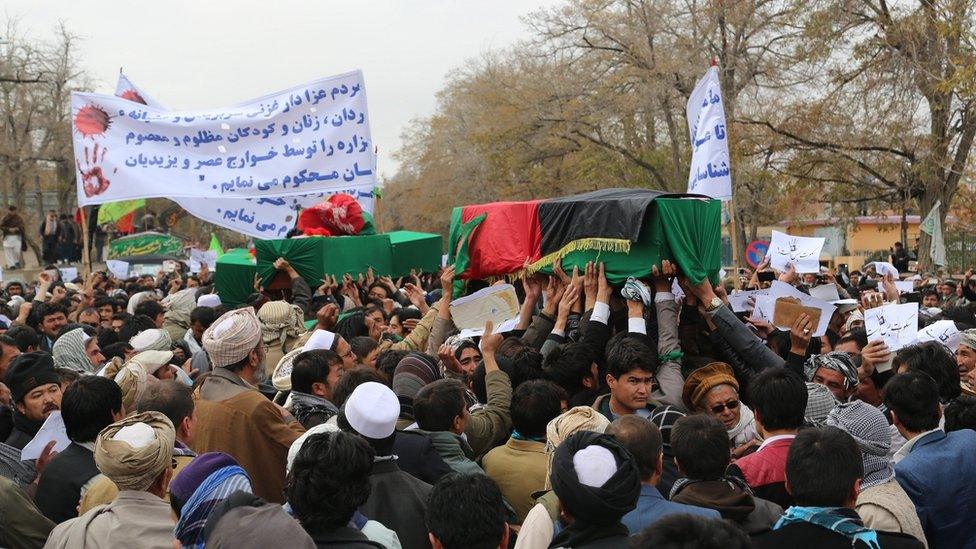What's behind Afghan power project protests?
- Published
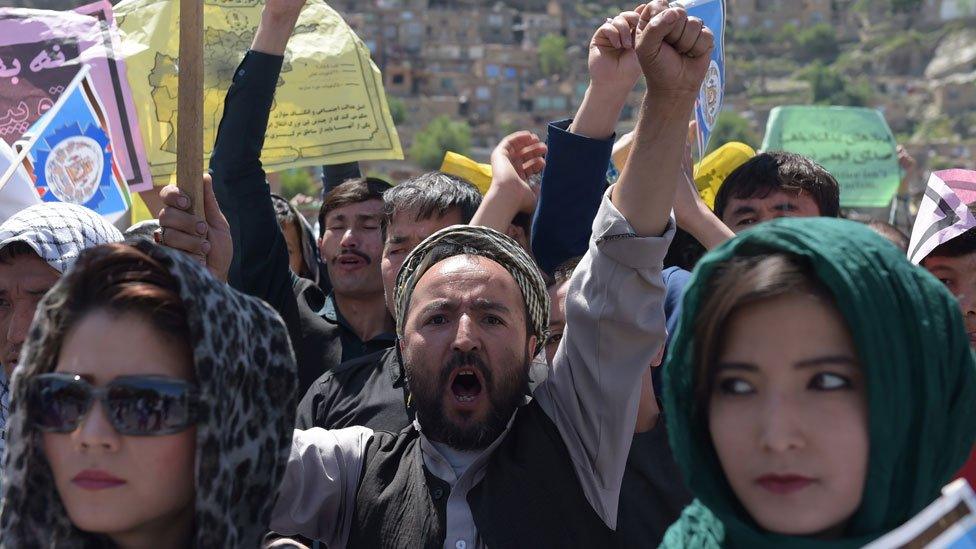
Thousands of Shia Hazaras took to the streets of Kabul in protest at the plan
The Afghan government has halted work on a major regional energy project after thousands of demonstrators from the ethnic minority Hazara group took to the streets of Kabul on 16 May to protest against what they see as moves to marginalise them.
What prompted the protests?
The multi-million-dollar project to bring electricity from neighbouring Turkmenistan had originally been scheduled to go through the predominantly Hazara provinces of Hazarajat and Bamiyan, but was later re-routed to the northern Salang Pass.
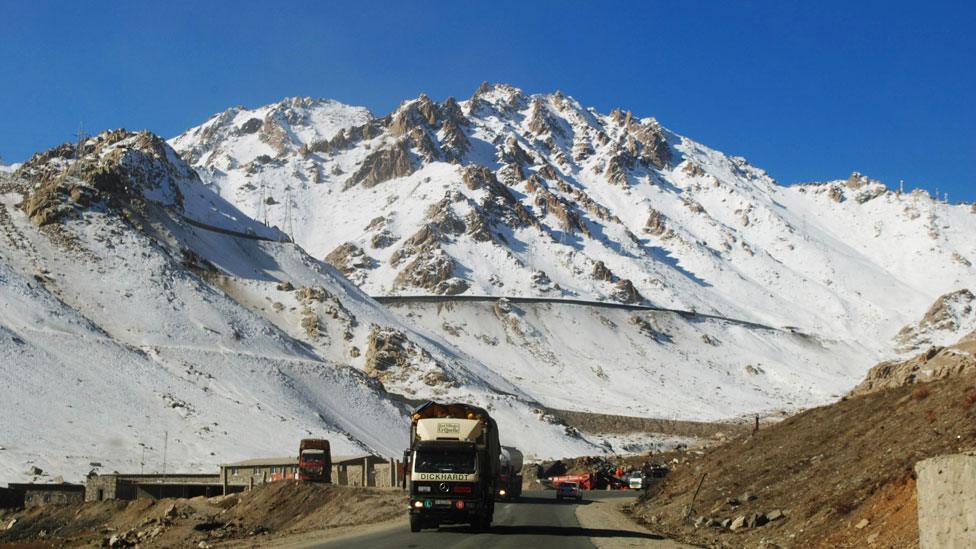
Salang Pass has been considered as the preferred route for the project
The government says the new route is more cost-effective, but Hazara leaders have called for the decision to be reversed.
President Ashraf Ghani has ordered an investigation into the controversy, and a report is due within the next week or so.
Who are the Hazaras?
The Hazaras - mostly Shia Muslims - make up the third largest group in Afghanistan. They live mainly in the centre of the country.
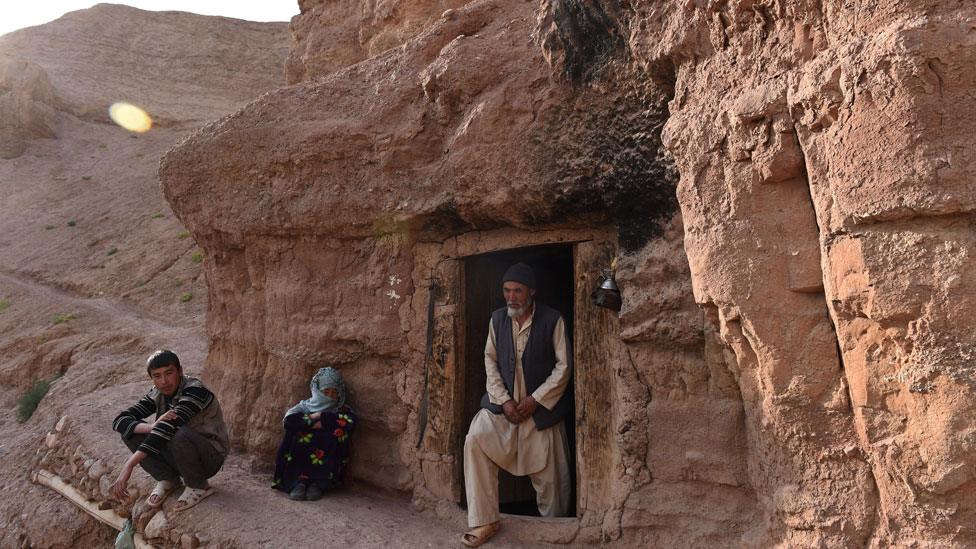
Hazaras live mainly in central Afghanistan, including here in Bamiyan
They complain of persistent discrimination, especially during Taliban rule in the late 1990s, when many of them fled to Pakistan, Iran and Tajikistan.
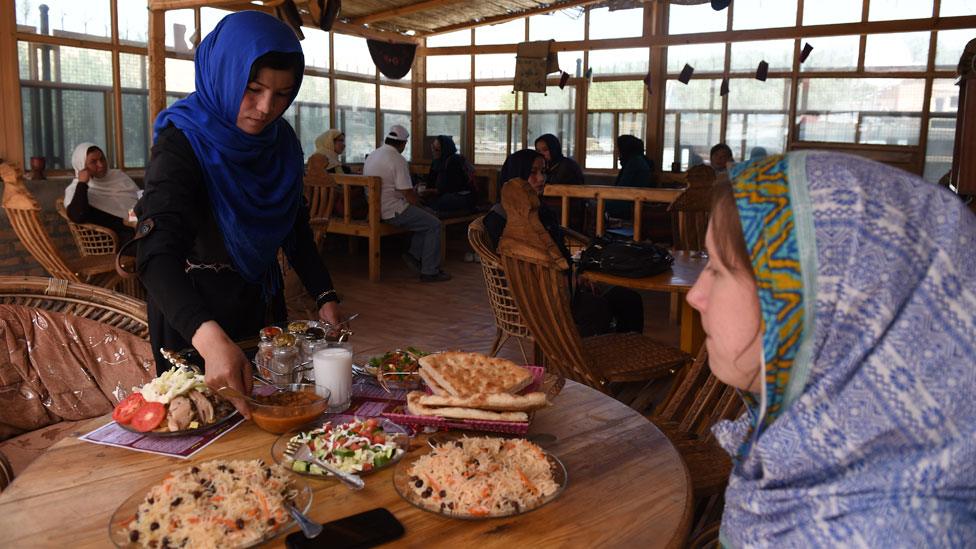
Hazaras at a women's tea house in Bamiyan
What are they demanding?
Hazara leaders are calling on the government to stick to an initial plan to run the power line through the central regions or brace themselves for more protests. Their demands are co-ordinated by a group called the "Enlightening Movement".
Hazara grievances are supported by some representatives of other ethnic groups - particularly the Tajiks - but others accuse them of political opportunism and of trying to use the controversy to shore up their standing among their own supporters.
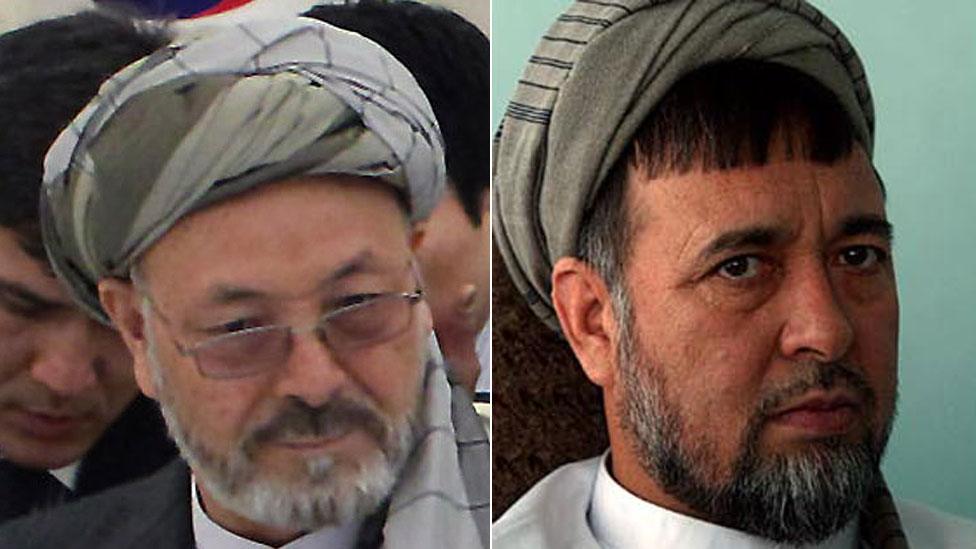
Karim Khalili (left) and Mohammad Mohaqiq are among those accused of taking advantage of the controversy
Those singled out by the media in this respect include the former vice-president, Karim Khalili, Mohammad Mohaqiq - an aide to Chief Executive Officer Abdullah Abdullah - and Herat MP Ahmad Behazda, a rising Hazara politician.
Why is the power scheme important?
The project, funded by the Asian Development Bank, aims to improve general access to electricity in Afghanistan.
Dubbed TUTAP after the acronym of the names of countries involved - Turkmenistan, Uzbekistan, Tajikistan, Afghanistan and Pakistan - it will carry power from Central Asia to Afghanistan, with any surplus going on to Pakistan.
What might happen next?
President Ghani has insisted that all parts of the country would be treated equally and said a commission, which includes representatives of Hazaras, will now review all decisions to do with the project.
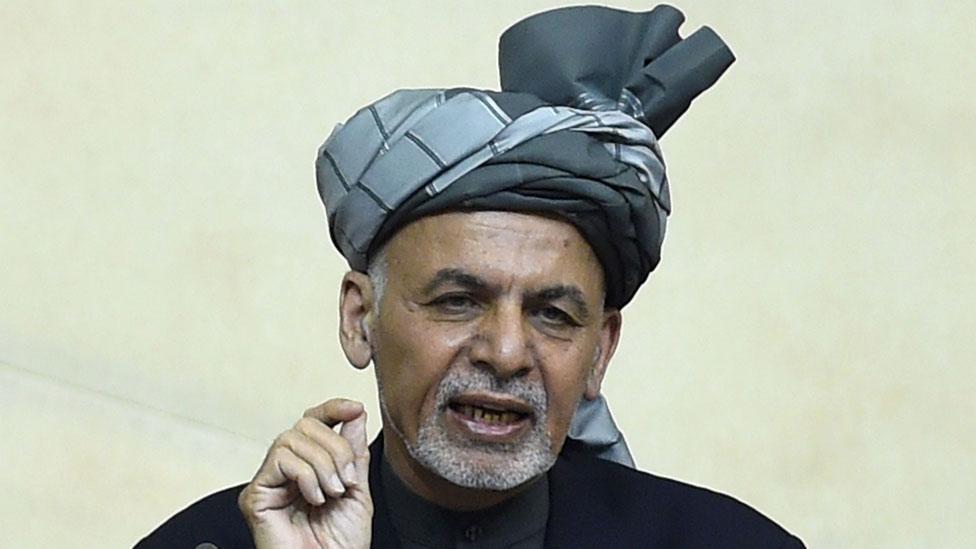
President Ghani has pledged to treat all Afghans equally
Some commentators think Mr Ghani's move is motivated by his wish to project the idea of national unity ahead of international conferences on Afghanistan in Warsaw and Brussels.
They think that, given that the preliminary work has already been done and contracts awarded, there is little prospect of the decision being reversed, and say the appointment of the commission is just a palliative for Hazara leaders.
BBC Monitoring reports and analyses news from TV, radio, web and print media around the world. You can follow BBC Monitoring on Twitter, external and Facebook, external.
- Published11 November 2015
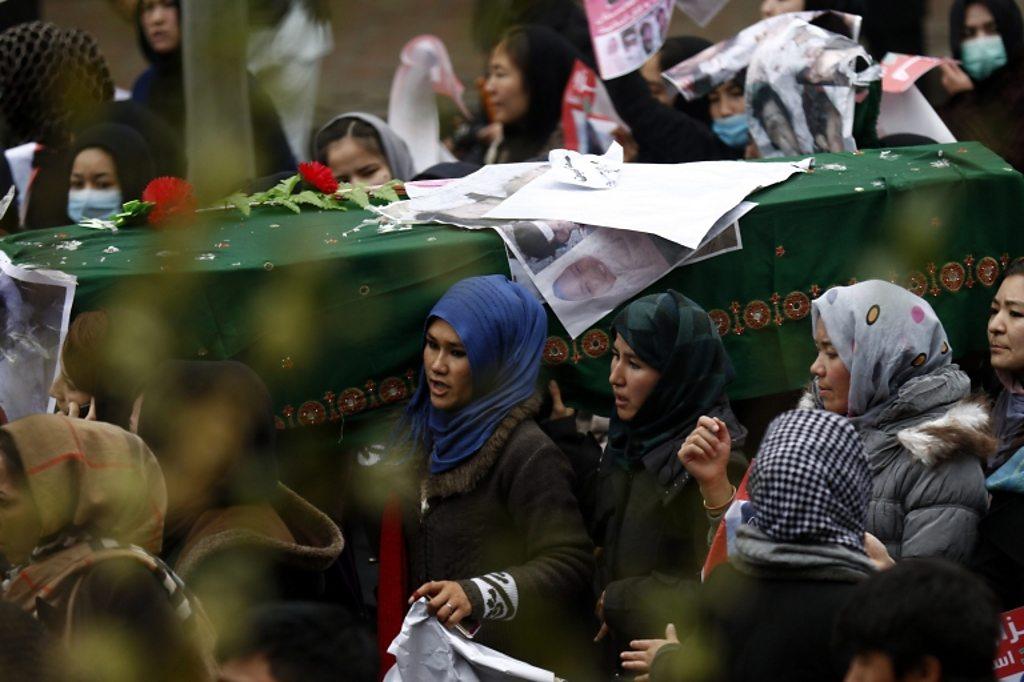
- Published10 November 2015
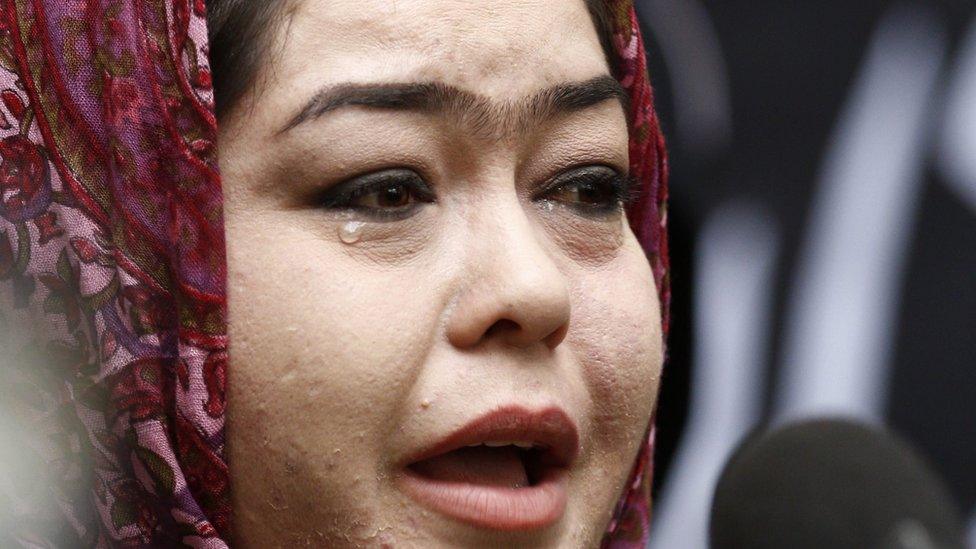
- Published11 November 2015
